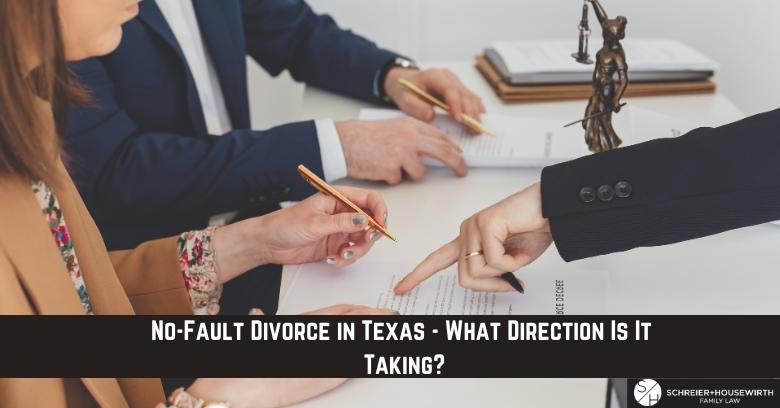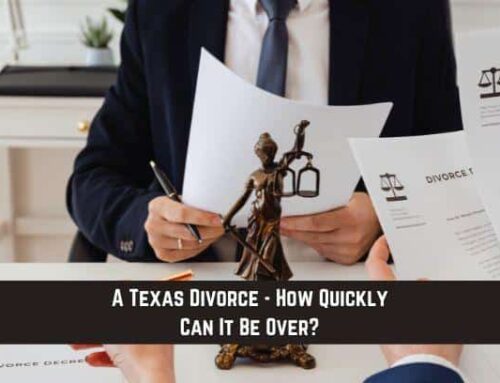Since their inception, no-fault divorces have been a preferred method for Texans to end their marriages in a less traumatic way.
Yet the topic of no-fault divorces has come into contention as many divorce attorneys now believe that they cause more problems than they solve.
Read on to learn the differing opinions shared by no-fault divorce lawyers and those who disagree with this method and what it means for divorce law in Texas moving forward.
What Is A No-Fault Divorce?
A no-fault divorce is one where spouses can end their marriage without declaring fault against one partner or the other.
These divorces are usually filed on the grounds of insupportability and they do not require spouses to accuse each other of any misconduct, which is required in a fault-based divorce.
Although Texas is technically a no-fault state, giving spouses the ability to end their marriages without declaring misconduct, divorce lawyers point out that the state also recognizes at-fault divorces for more complicated circumstances in which wrongdoing has occurred.
What Are The Advantages and Disadvantages of No-Fault Divorce?
No-fault divorce has been recognized in Texas since 1970, a change that was made to the family law roster in response to societal changes and evolving legal opinions.
No-fault divorce lawyers find that the main advantage this type of divorce offers to their clients is an easier, faster, and less expensive process, an amicable separation, and there is a greater motivation for spouses to work together on suitable solutions when ending their marriages.
Issues like property division, custody, child care and visitation, and other decisions can usually be worked out in mediation, many times preventing the need for an actual court hearing.
However, many divorce attorneys find a traditional, fault-based process preferable, citing that the option of no-fault divorces prevents coupes from effectively working out their differences.
An easy divorce can negatively affect children who are forced to endure their family splitting up and can eliminate the personal responsibility that couples have to each other when they got married to work through their challenges and stay married.
What Are Current Texas Opinions on No-Fault Divorce?
Today, Texas continues to recognize both no-fault divorce and fault-based divorce, largely due to the ways that society is changing.
While many divorce lawyers still agree that a fault-based divorce is recommended in cases where domestic abuse or other significant misconduct has occurred, there is still great support for no-fault divorce in less volatile situations.
Alternately, those who are not in favor of no-fault divorces today continue to recommend counseling and other methods to resolve marital issues, leaving fault-based divorce for times when those issues are substantial and divorce remains the best solution.
The best option will depend on the specifics of the relationship, why spouses are seeking a divorce, and the complexity of their situation.
Essentially, there is no one answer, so spouses should discuss the two processes with their divorce lawyer and weigh the pros and cons of each method in their specific circumstances to move ahead the right way.
Discuss Divorce With A Family Divorce Attorney
Although no-fault divorce can be fast and easy, there are some important reasons why they may not be optimal for every couple.
The best advice is to contact an experienced divorce lawyer to discuss the marital situation and reasons for seeking a divorce, then find the most suitable path forward.
Experienced Texas divorce lawyers can function as no-fault divorce lawyers or help them through a standard, fault-based process if that ends up offering a more favorable resolution.
Schreier & Housewirth Family Law
1800 West Bowie Street, Suite 200-E
Fort Worth TX 76110
817-923-9999
Gregory L. Housewirth is a Board-Certified Family Law Specialist practicing in Fort Worth Texas. With 30 years of family law experience, Mr. Housewirth has represented hundreds of clients in divorce, custody, CPS, modification, and grandparent cases. In addition, Mr. Housewirth is a qualified family law mediator and a member of Collaborative Law Texas, a practice group dedicated to promoting collaborative divorce in Texas.






